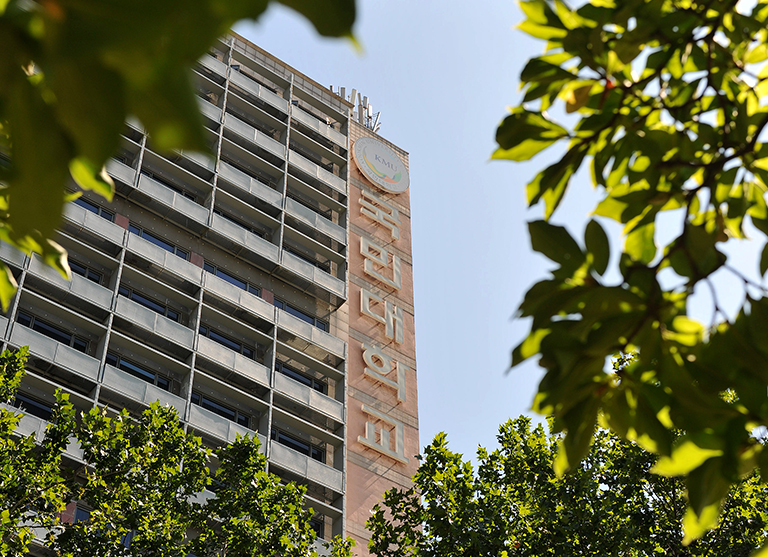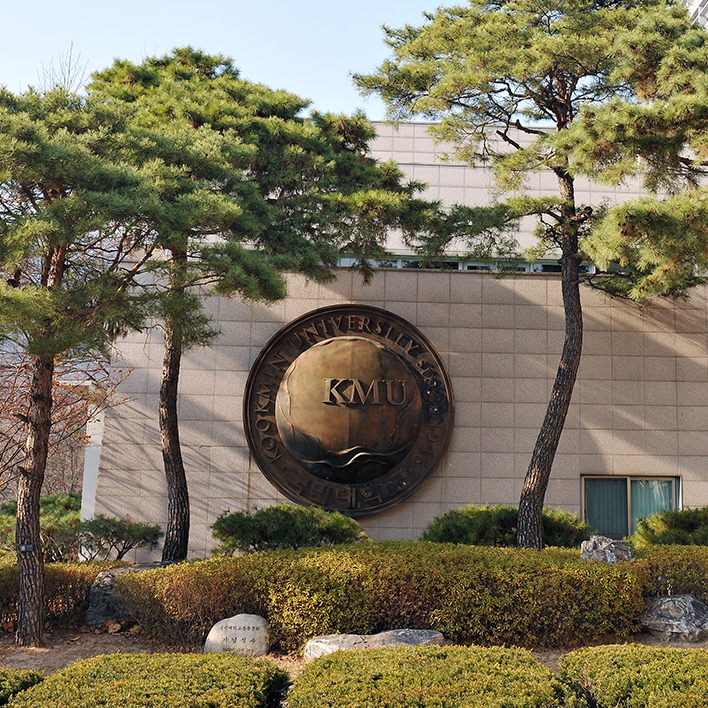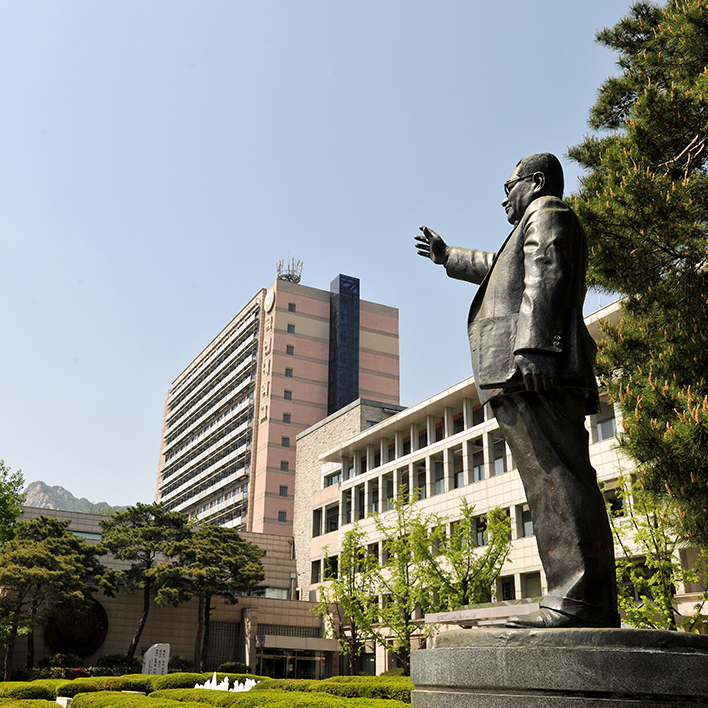
The College of Social Sciences aims to teach students to acquire abroad theoretical background and research competence in the social sciences. It trains the students to be able to use various perspectives and research methods for analyzing social phenomena and policy making. Methodologically, the faculty seeks a balance between the quantitative and the qualitative research methods. The college includes many specialized classrooms and seminar rooms equipped with multimedia and computer terminals. A variety of special collections and educational facilities exist. The college is composed of the following three departments and two schools.
School of Public Administration and Public Policy
The Department of Korean Language and Literature carries out research and teaches the historical tradition, characteristics, features and sources of Korean language and literature. Through comparative lingua-cultural work, the department encourages students to cultivate an independent and open-minded worldview. The department also aims to produce graduates with the potential to contribute to academic activities, modern society, education, traditional culture, and mass media so as to preserve and revitalize Korean culture within the framework of world culture.
-
Public Administration Major
The Public Administration Major delves into the nature of national power and the macroscopic context of the policy-making process. It deals with diverse issues and themes centered on efficient, effective management and the structuring of public organizations such as the central government, local selfgovernment, and public institutions. We hope to respond to the social demands on public institutions by improving organizational management skills and expertise. The curriculum offers knowledge of organizational management, human resources management, resource distribution, and the management of strategic results.
-
Public Policy Major
The Public Policy Major examines the cycle of public policy - establishment, formulation, execution, evaluation, and the review of the policy agenda - to teach the macroscopic framework of national administration. In addition, it investigates the various issues and themes related to solutions for improving the quality of specific policies. As we plan to respond to industry demands for public administration, we are instilling expertise in individual policy fields, aside from the general field of policy studies. This program teaches environmental policy, industry policy, scientific technology policy, informatization policy, and welfare policy. It also helps students to acquire practical knowledge and skills related to advertising and public relations. This major teaches strategic planning, media planning, research, copywriting, visual advertising, and public relations. Its students also gain a broad knowledge of mass media, persuasion, and media effects.

Department of Political Science and International Relations
The educational goal of the Department of Political Science and Diplomacy is to foster elite individuals to be patriotic, scientific, and democratic citizens, who have diverse perspectives, intellectual abilities, good personalities, and leadership skills.This program offers a variety of opportunities for students to select among the following courses of study
- 1. The study of domestic and international issues.
- 2. The study of laws, political institutions, and political behavior in the process of democratization.
- 3. The analysis of the academic theories of political science.

Department of Sociology
Sociology explores the causes of order and the change in human societies by scientifically analyzing the structure and progress of a society as well as the characteristics of human beings. Sociologists understand individuals as both elements and products of a society. Therefore, a sociological perspective considers both individuals and their social contexts simultaneously in explaining all human behavior and social phenomena. The educational objective of this program is to offer students the sociological insight needed to scientifically analyze social phenomena through a variety of theories and research methods.

School of Communications
The School of Communications helps students understand the communication process by teaching the theories, concepts, and general ideas of communication. The areas within the field include mass communication, journalism, advertising, public relations, interpersonal communications, mass culture, and media industry. The school provides a broad education in the liberal arts and social sciences for the student because the study of communications is based on an understanding of the human mind, society, history, and culture. Students also acquire the practical knowledge and skills needed to be media professionals. The School of Communications offers two majors: Mass Media and Advertising.
-
Media and Communication
Mass Media majors learn the role that the various forms of mass media - including newspapers, magazines, television, radio, film, and the new computer assisted media - play in society.
-
Advertising & Public Relations
Advertising Studies helps students to understand advertising and public relations as a whole. It also helps them to get the practical knowledge and skills needed in advertising and public relations. This major teaches strategic planning, media planning, research, copywriting, visual advertising, and public relations. Its students also gain a broad knowledge of mass media, persuasion, and the effects of the media.

Department of Education
The Department of Education offers courses on the theories and practices of education to train educators for secondary schools, firms, and other educational roles in our society. In order to respond effectively to these needs, the Department of Education has a colorful program with a wide range of classes from the philosophy of education to psychometrics, using highly sophisticated technology. A series of demanding training sessions are designed for students to become specialists in various educational settings. These include the secondary schools, educational administration, counseling in industrial education, human resources development, data-analyzing, education-related consulting firms, social work, and other areas requiring a certificate in education.

Department of Russian and Eurasian Studies
The Department of Eurasian Studies provides students with interdisciplinary, comprehensive, and integrated education that focuses on the politics, economy, history, society, and culture of Russia and other Eurasian countries, as well as on the Russian language, the common language in the Eurasian region, in order to produce experts on Eurasia with a global mindset.

School of East Asian International Studies
The School of East Asian International Studies cultivates globally minded specialists with deep insights into the rapidly evolving dynamics of East Asia. Bringing together the Department of China Studies and the Department of Japan Studies, the School provides an integrated academic platform that emphasizes interdisciplinary learning, comparative regional analysis, and real-world problem-solving. Our programs aim to develop students who can understand and interpret the political, economic, social, and cultural transformations shaping China, Japan, and the broader East Asian region. Through a balanced curriculum that combines academic rigor with practical engagement, the School prepares graduates to become creative policy professionals, cross-cultural communicators, and future leaders capable of navigating the complexities of global and regional change.
- China Studies
- Japan Studies


















